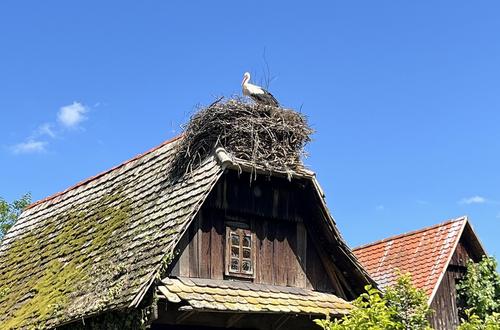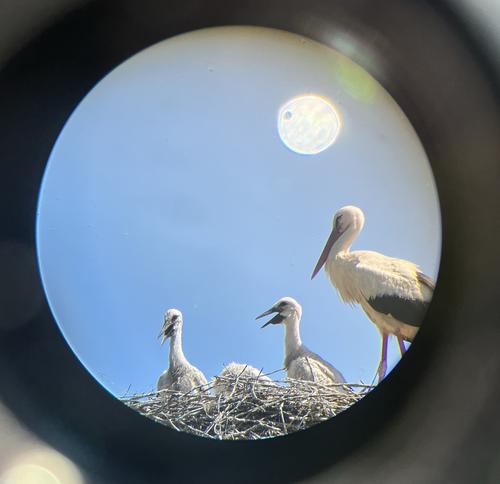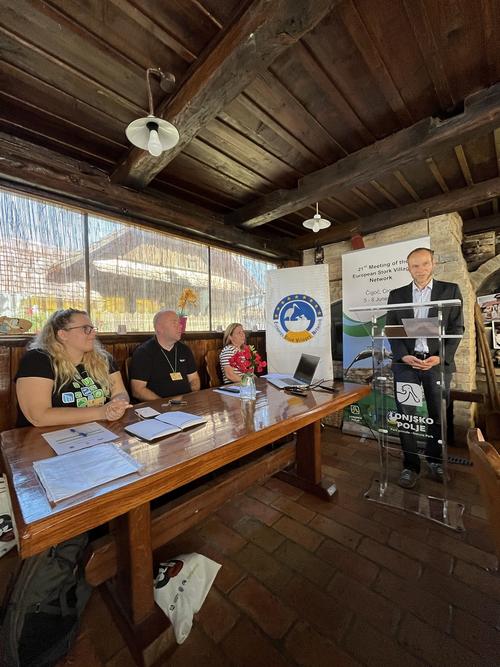From 5 to 7 June, the 21st meeting of the European Stork Villages will take place in Čigoć, Croatia. It is an anniversary for the hosts and the entire network: Čigoć was the first municipality to be recognised as a ‘European Stork Village’ by EuroNatur in 1994.

There are manned stork nests on many of the characteristic wooden houses in Čigoć.
© Justine Vansynghel
Focus on the stork family: these days in Čigoć, everything revolves around the big birds.
© Justine Vansynghel
Project manager Dr Stefan Ferger emphasises the unifying character of the network in his presentation.
© Justine VansynghelTwenty-six stork conservationists and representatives from eight municipalities are meeting in Čigoć this year. The village in the Sava floodplains is home to one of the largest colonies of white storks in Europe. The storks find a rich supply of food to raise their young on the extensive Lonjsko Polje Nature Park pastures, which are grazed by originals breeds of domestic animals perfectly adapted to the landscape. This early summer, 18 pairs of white storks are sitting on their nests.
The conference programme includes lectures on the development of stork populations in the respective communities, workshops on cooperation within the Europe-wide network and excursions. The programme includes a trip to the Krapje Đol bird sanctuary, which is particularly well-known for its large colony of spoonbills
"It is impressive to observe the large populations of white storks and spoonbills,“ notes Dr Justine Vansynghel, bird expert and project manager at EuroNatur. "The stork village of Čigoć is beautifully embedded in the Lonjsko Polje Nature Park and provides an important habitat for a variety of wetland species. It's nice to get to know the special aura of this place, which has been an exemplary member of the European Stork Villages network for 30 years now,“ says Vansynghel.
"Before the weekend of the European elections, the European Stork Village Network is an example of what EuroNatur's work is all about: we promote the peaceful exchange of cultures across national borders to protect our common European natural heritage,“ adds Dr Stefan Ferger, Programme Manager Migratory Bird Conservation at EuroNatur.


